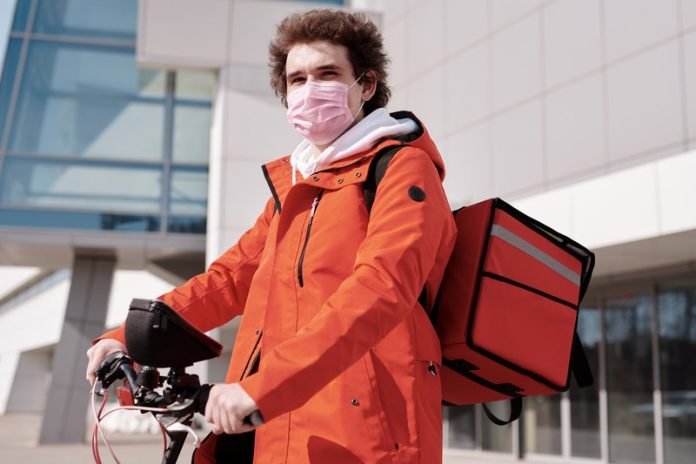
Wearing a face mask helps limit the spread of COVID-19 by reducing respiratory droplets and aerosols spewed into the air when people breathe, talk, laugh, sneeze or cough.
But the physical barrier created by masks has prompted concerns that they might impair the cardiopulmonary system by making it harder to breathe, by altering the flow of inhaled oxygen and exhaled carbon dioxide, and by increasing dyspnea — a medical term that describes shortness of breath or difficulty breathing, especially during physical activity.
In a new study, researchers found that while sensations of dyspnea might increase, there is little evidence that wearing a face mask diminishes lung function, even when worn during heavy exercise.
The research was conducted by a team at the University of California San Diego and elsewhere.
The team came to their conclusions following a review of all known scientific literature published that examined the effects of various face masks and respiratory loading devices on physiological and perceptual responses to physical activity.
These studies assessed multiple factors, such as work of breathing (the quantified energy expended to inhale and exhale), arterial blood gases, effects on muscle blood flow and fatigue, cardiac function, and flow of blood to the brain.
For healthy people, the effects of wearing a mask on these physiological markers were minimal, no matter what type of mask was worn or the degree of exercise.
The team also found age played no big influencing role among adults. Gender differences were deemed inconsequential.
The team says there might be a perceived greater effort with activity, but the effects of wearing a mask on the work of breathing, on gases like oxygen and CO2 in the blood, or other physiological parameters are small, often too small to be detected.
There’s also no evidence to support any differences by sex or age in physiological responses to exercise while wearing a face mask.
The single exception, the researchers note, maybe people with a severe cardiopulmonary disease in which any added resistance to breathing or minor changes in blood gases could prompt dyspnea great enough to affect exercise capacity.
In such cases, these individuals might feel too uncomfortable to exercise, and that should be discussed with their doctor.
However, the fact that these people are at great risk should they contract COVID-19 must also be considered.
One author of the study is Susan Hopkins, MD, Ph.D., a professor of medicine, and radiology.
The study is published in the Annals of the American Thoracic Society.
Copyright © 2020 Knowridge Science Report. All rights reserved.



